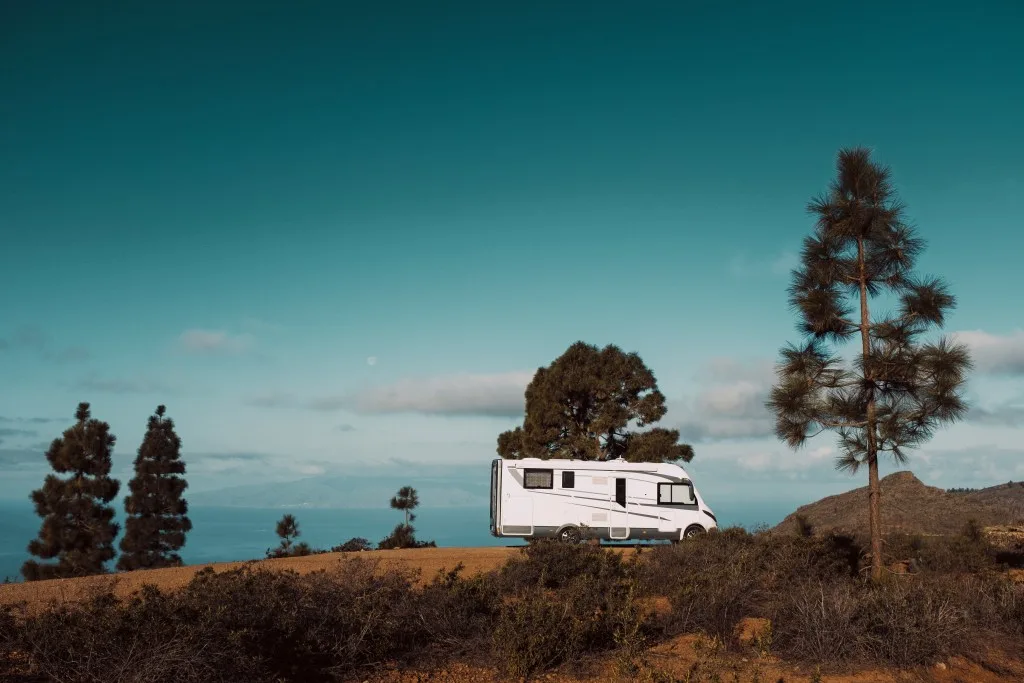You may love the scent of a new car, but you’ll hate how a new RV smells.
Brand-new campers usually reek of the chemical formaldehyde. The odor can even be dangerous if you remain exposed for too long!
Today we’ll give you some insight into why new RVs smell so bad and how to deal with the dreaded stench.
Let’s dig in!
What Do New RVs Smell Like?
When you get your hands on a brand-new RV, you’ll probably find the scent repulsive. If you have a problem, you’ll notice a strong odor reminiscent of pickles. The smell of the volatile organic compound formaldehyde is vinegar-like. This chemical is common in wood paneling and foam insulation, things your recent purchase will most likely have.
What Causes the New RV Smell?
Formaldehyde, one of the most common chemicals on our planet, is present in many things. This includes insulation, glue, and soap. Manufacturers use the compound to make pressed wood products like particle board and plywood. RVs usually have floors, walls, and even furniture made of pressed wood, which gives off a formaldehyde scent. The smell may also originate from paint or even curtains.
Before your new RV arrives on the lot, it typically remains closed with no ventilation. The formaldehyde smell begins to build up and can become overwhelming.

Do New RVs Have Formaldehyde?
Using particle board instead of natural wood can be a real cost-saver for RV manufacturers. Particle boards and plywood consist of bits of wood that have been glued together. The glue used commonly uses formaldehyde. If your RV has particle board or plywood, your RV likely has formaldehyde.
The stench fades over time as the formaldehyde dissipates, so if you buy a used trailer, you won’t have to suffer through the new RV smell phase. You can also look for campers made of aluminum, like Airstream, if buying a brand-new, formaldehyde-free rig appeals to you.
Pro Tip: We took a closer look to uncover Why Does My RV Smell Like Rotten Eggs?
Is the New RV Smell Dangerous?
That new RV scent not only smells bad but can also be dangerous. Most commonly, the chemical causes watering and burning of the eyes. It can also cause coughing, sore throat, and nausea. On several accounts, mobile homeowners have experienced formaldehyde poisoning and even ended up in the hospital.
Formaldehyde use in travel trailers isn’t regulated in the United States, so be wary of a vinegar-like smell in a new camper. RV enthusiasts may buy a rig assuming it’ll be ready for a trip right away, only to end up in the emergency room. How can you prevent this from happening to you?

How to Get Rid of the New RV Smell
So you’ve purchased your dream RV! It has every feature you’ve ever wanted, but also one you didn’t count on, formaldehyde. Let’s go over some advice for removing the unwanted and dangerous smell that comes with a new rig.
Air Out Your RV
If you have a smelly motor home, open all the doors and windows to help the formaldehyde escape. Turn on any fans inside to get a breeze moving, especially if you have a vent fan that sucks the air out of your RV. It’ll take anywhere from a few hours to a few days to get the stench to disappear.
Make sure you try this out on a nice day. Leaving windows open during rain could cause severe water damage.
Heat Things Up
You can also burn away unwanted odors by cranking up the thermostat. Close your RV and turn the heat up as high as possible for at least twelve hours. We suggest leaving it closed overnight after turning the heat off. In the morning, open your windows and doors and turn on the fans to let everything cool off while the odor spills out.
Before trying this method, you can open all the cupboards and drawers to ensure the heat gets to every formaldehyde-filled corner.
Cook Food
We can’t think of a better way to get your camper to feel like home than cooking something good. Whether you fry up some bacon or bake some cookies, using your kitchen will help cover up unwanted odors. While the food might not eliminate the new RV smell, it can still help prepare your rig for the road.
Air Purifying Plants
This next trick will help eliminate smells while making your camper look good. Studies have shown that plants can purify the air by removing toxins like formaldehyde. Small houseplants like bamboo or Boston fern can help clarify your living space. If you decide to invest in some plants, don’t forget to take care of them when you’re not out on the road.
Activated Charcoal
Activated charcoal can serve a couple of purposes for life on the road. It absorbs excess moisture, which can help you prevent mold and mildew from growing in your RV while purifying the air. You can purchase charcoal in small bags for indoor use.
The charcoal pouches are even reusable. Just dry them in the sun for about an hour each month. Once the odors clear, you can keep using them for a fresh camper. You can also use an electric air purifier with carbon to help keep your RV clean.
Pro Tip: Different problems will cause different smells in your RV. Get to the bottom of What’s Making Your Camper Stink?
Your New RV Doesn’t Have to Smell
No one wants a stinky rig, especially if those aromas are dangerous. If your new RV smells like formaldehyde, make sure to air it out and get some plants before you spend the night in it.
You might also consider eliminating odors using activated charcoal or a fresh meal. Before long, you’ll feel right at home even when you’re on the road.
Discover the Best Free Camping Across the USA
To be honest with you, we hate paying for camping. There are so many free campsites in America (with complete privacy).
You should give it a try!
As a matter of fact, these free campsites are yours. Every time you pay federal taxes, you’re contributing to these lands.
Become a FREE CAMPING INSIDER and join the 100,000 campers who love to score the best site!
We’ll send you the 50 Best Free Campsites in the USA (one per state). Access the list by submitting your email below: